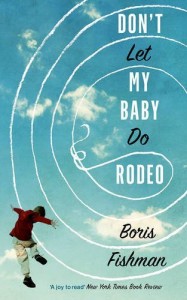 Published by One: An imprint of Pushkin Press 25 July 2016
Published by One: An imprint of Pushkin Press 25 July 2016
329pp, paperback, £12.99
Reviewed by Alison Coles
Blessed with one of the most intriguing, eye-catching, purchase-inviting titles conceivable, this is an extraordinary book, worthy of joining the pantheon of American literature, examining what it is to have be uprooted from another culture to become American. As with the best, richest works of fiction, this novel speaks to the reader of what they themselves see in the book; there are many themes – but for me the one that is explored here in the most piercing, agonizing way is that of belonging, understanding who you are quite separately, and together with, your inheritance of birth, of physicality, of nationality, of landscape. The word ‘home’ is explored in all its senses: ‘home’ as in Russia ; ‘home’ as in the adopted USA; ‘home’ as in feeling safe; ‘home’ as in one’s own deep soul; ‘home’ also as in Native American echoes of how life once had been, beyond their own living memories.
Ostensibly, this is a story of two Russians who have become Americans: Alex Rubin is Jewish and originally from Belarus, and Maya is from Ukraine. (Fishman emigrated from the Ukraine himself aged nine.) Maya is an exchange student with three weeks left on her student visa before she has to return to Ukraine, but is enabled to stay by marrying Alex. She does not want to return to Kiev to be a doctor, she wants instead to be a cook in New York. They marry and settle in Sylvan Gate Drive, retaining many of their Russian family ways, while trying at the same time to assimilate in New Jersey.
Finding they cannot have children, they decide to adopt a seven-week old non-Jewish boy, Max, without ever telling him that he is adopted. Alex and Maya had apparently been chosen by the agency because of something Alex had written – about wanting to put down roots in America ‘as solidly American as the birth parents’.
Alex and Maya Rubin find, although they have opted for a closed adoption, that the birth parents are forcing the timing of the handover by driving to their house in New Jersey – and so they learn that the eighteen-year-old parents Laurel and Tim – who has been injured while riding rodeo – are from Montana, but little else. (It is on this trip that Laurel, Max’s mother, imparts her warning to Maya about rodeo.) While being conscious of spoiler alerts, the inciting incident of Maya going to collect her son Max off the yellow school bus, only to find he has taken another route entirely away from her and is what sets the whole trail of the book in motion. Max, in the eyes of the parents, goes feral, he engages in “strange behaviour”, he sleeps on the ground, prefers tents to bedrooms, eats grass and sits in the river.
Is he strange because he knows deep down he is adopted? Is he strange from having unknown inherited problems? Is he strange because of how Alex and Maya have raised him? Who is he, this unrooted, uprooted child? Maya insists later, when the questions arise and she cannot be at peace with them, that they take a road trip back to Montana to find the answers. ‘She wanted to give Max the gift of native feeling, for Maya was on intimate terms with its absence, knew its constant sensation of slight poisoning, of living in error.’ The overlap of Maya’s intent – nominally for Max’s sake – but subconsciously for herself, echoes so many actions humans take, and it is only in the doing that it becomes clear what the original question really is.
Maya has been anaesthetized for years by her marriage, by being a mother, and only begins to reawaken when she explores her son’s strange antics. Alex, a more passive character, occupies a subtler zone of doubt. His parents, the ever present Eugene and Raisa, with their insistence that everything should work in this new country, instill into Alex the idea that the USA is something to believe in. He does, however, have doubts about this and about New Jersey in particular. While not being able to take any real or sustained action about it, he survives in the hope that life will work out.
The story is seen through the eyes and the behaviour of Maya, who speaks for all our neuroses, who makes them large, forcing the issues by living through them – never avoiding them. Fisher’s courage in creating an intelligent, flawed, frightened character allows us to love her when she behaves ‘badly’. Maya, with her courage, discovers while walking at a lonely campground in the dead of night, that, ‘Every step resolved amicably was a small deliverance – she got sixty a minute. But you couldn’t feel those attacks of relief – safe – safe – safe – without striding around darkness where rattlesnakes roamed.’ Incidentally, in parts of the book, the punctuation is used in a way that follows and supports Fishman’s own voice, rather than stifles it by following the rules too closely.
By the end of this book a degree of temporary catharsis is reached, but also the sense that the immigrants’ story is not completely resolved. Fishman leaves us with an aftertaste of sadness but also one of admiration for the courage that the newly American Rubin family are digging deep to find in order to feel so completely American that they forget to look back across the sea to Russia.
